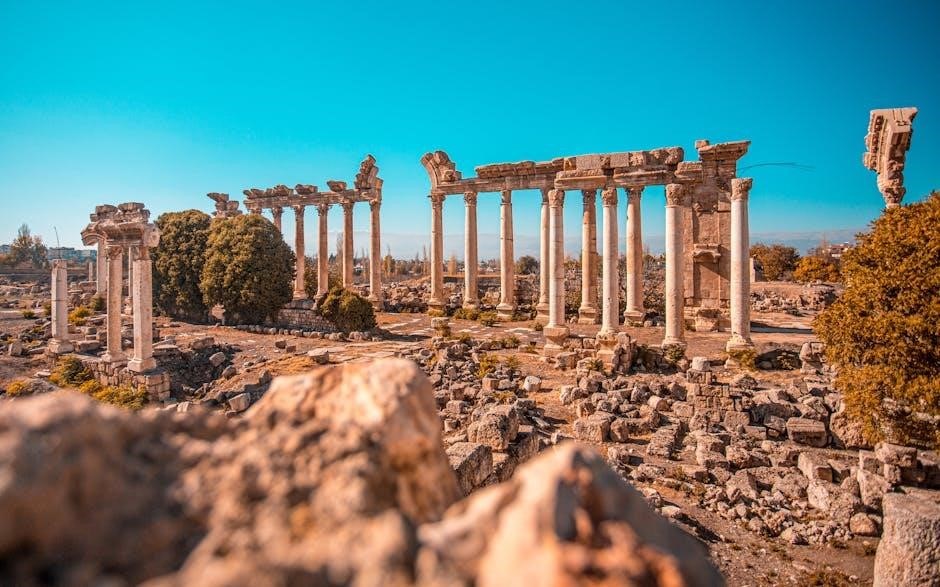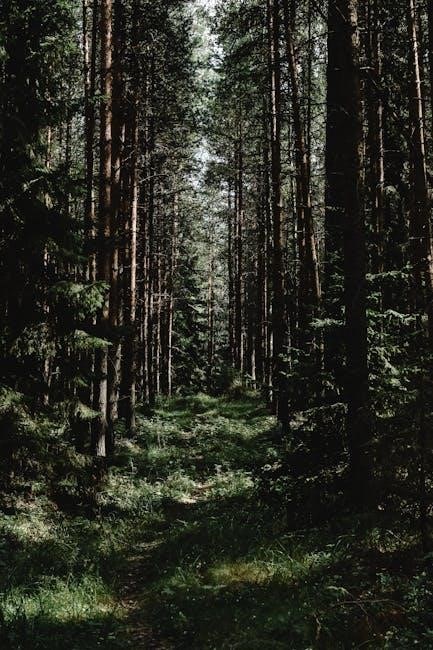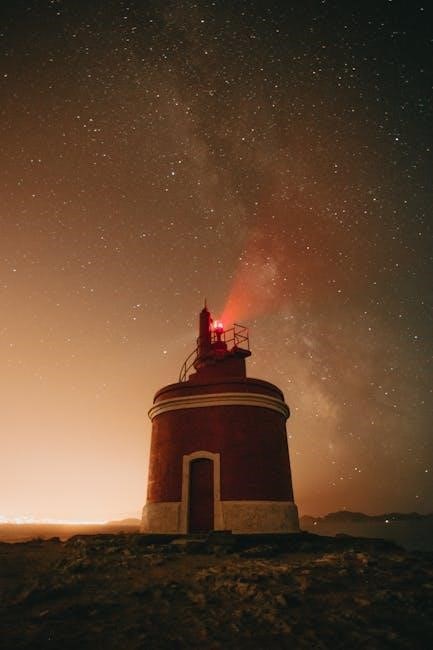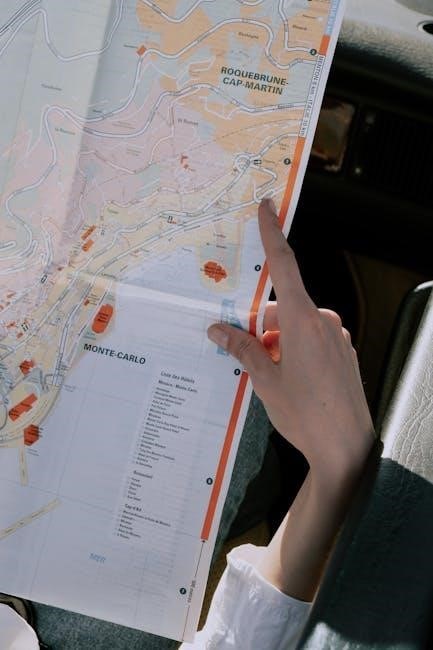Lebanon, often called the “Switzerland of the Middle East,” is a captivating country nestled between the Mediterranean Sea and majestic mountains. Its unique blend of Arab and European influences, vibrant cities, ancient ruins, and stunning landscapes makes it a destination like no other.
Overview of Lebanon’s Unique Culture and Geography
Lebanon, a small yet diverse country, blends Arab and European Mediterranean influences, creating a rich cultural tapestry. Its geography is striking, with a Mediterranean coastline, snow-capped mountains, and fertile valleys. This unique combination of sea and snow, along with vibrant cities and ancient historical sites, makes Lebanon a fascinating destination that seamlessly merges tradition with modernity in both culture and landscape.
Why Visit Lebanon: A Blend of Tradition and Modernity
Lebanon captivates travelers with its unique blend of tradition and modernity. From the vibrant streets of Beirut, where ancient history meets cosmopolitan charm, to the breathtaking Mediterranean coastline and snow-capped mountains, Lebanon offers a diverse experience. Its rich cultural heritage, delicious cuisine, and warm hospitality make it a must-visit destination for those seeking a mix of history, natural beauty, and modern urban life.

Beirut: The Vibrant Capital
Beirut, Lebanon’s resilient capital, seamlessly blends tradition with modernity. This vibrant city offers a rich cultural experience, from historic sites to lively nightlife, capturing the heart of Lebanon.
Must-Visit Attractions in Beirut
Beirut offers a mix of history, culture, and natural beauty. Stroll along the iconic Corniche, a picturesque seaside promenade perfect for relaxing. Explore the National Museum of Beirut, showcasing Lebanon’s rich history. Visit the stunning Mohammad Al-Amin Mosque and the Sursock Museum, housed in a historic villa. Don’t miss the vibrant neighborhoods of Hamra and Gemmayzeh, known for their lively atmosphere, cafes, and shops.
Exploring Beirut’s Culinary Scene
Beirut’s culinary scene is a vibrant celebration of flavors, blending traditional Lebanese dishes with modern twists. Indulge in a hearty mezze spread, featuring hummus, tabbouleh, and grilled meats. Don’t miss the fresh seafood and local wines. The city’s restaurants, from cozy eateries to upscale venues, offer unforgettable dining experiences. Stroll along the Corniche and enjoy a coffee or dessert at one of the many charming cafes, soaking in the lively atmosphere.

Historical and Archaeological Sites
Lebanon is a treasure trove of ancient history, with UNESCO World Heritage Sites like Baalbek, Byblos, and Tyre showcasing Roman ruins and Phoenician heritage. The National Museum in Beirut offers a glimpse into the country’s rich archaeological past, while the Lebanon Mountain Trail reveals hidden historical gems nestled in its rugged landscapes.
ANCIENT CITIES: Byblos, Tyre, and Baalbek
Byblos, one of the world’s oldest cities, dates back to 5000 BC and is a UNESCO World Heritage Site. Its ancient port and ruins reflect its historical significance. Tyre, another UNESCO site, boasts impressive Roman-era ruins, including the Hippodrome. Baalbek, known for its colossal Roman temples dedicated to Jupiter and Bacchus, stands as a testament to Lebanon’s rich history and architectural grandeur, attracting history enthusiasts and archaeology lovers worldwide.
The National Museum of Beirut: A Glimpse into History
The National Museum of Beirut offers a fascinating journey through Lebanon’s rich history, showcasing artifacts from prehistoric times to the Byzantine era. Its collection includes ancient mosaics, pottery, and sculptures, highlighting the country’s cultural and historical significance. A must-visit for history enthusiasts, the museum provides a deeper understanding of Lebanon’s diverse heritage and its role as a crossroads of civilizations.

Nature and Outdoor Activities
Lebanon offers a unique blend of Mediterranean coastlines and rugged mountains. Explore the Lebanon Mountain Trail for breathtaking hikes or enjoy skiing in its scenic peaks.
Hiking the Lebanon Mountain Trail
The Lebanon Mountain Trail spans over 350 km, showcasing diverse landscapes from forests to villages. While not well-marked, hiring a guide enhances the experience. Hikers can explore scenic valleys, interact with locals, and enjoy traditional meals. This trail offers a unique way to connect with Lebanon’s natural beauty and cultural heritage, appealing to both seasoned adventurers and those seeking a tranquil outdoor escape.
Winter Sports: Skiing in Lebanon’s Mountains
Lebanon’s mountains offer a unique skiing experience, with resorts operating from December to April. Skiers can enjoy stunning Mediterranean views while gliding down slopes. Popular spots include Faraya and Mzaar, catering to both beginners and experts. The season provides a rare blend of winter sports and cultural exploration, making Lebanon a standout destination for ski enthusiasts seeking a mix of adventure and Middle Eastern charm.

Lebanese Culture and Cuisine
Lebanon’s culture is a vibrant mix of Arab and Mediterranean influences, while its cuisine is renowned for its flavorful dishes and mezze, showcasing hospitality and culinary richness.
Traditional Lebanese Food and Mezze
Lebanese cuisine is a cornerstone of Middle Eastern flavors, with mezze being a central tradition. This array of small, shared dishes includes hummus, tabbouleh, grilled meats, and stuffed vine leaves. Each mezze plate balances fresh herbs, spices, and textures, reflecting Lebanon’s rich culinary heritage. The act of sharing mezze fosters a sense of community and hospitality, making it a quintessential Lebanese experience enjoyed during gatherings and celebrations.
Festivals and Cultural Events in Lebanon
Lebanon’s vibrant festivals and cultural events showcase its rich heritage and modern spirit. The Byblos International Festival and Baalbek International Festival feature world-class music and theater performances. The Beirut Marathon and Beirut Jazz Festival highlight the city’s energy. Traditional celebrations like Eid al-Fitr and Christmas blend with local customs, while village fairs and wine harvests in regions like Kefraya celebrate rural traditions. These events reflect Lebanon’s cultural diversity and warm hospitality.
Safety and Security Tips
Avoid South Beirut, Baalbek, and areas near the Syrian border due to security concerns. Stay informed, practice situational awareness, and follow local advice to ensure a safe visit.
General Safety Advice for Travelers
Travelers to Lebanon should remain vigilant, especially in crowded areas, and avoid discussing sensitive political topics. Stay informed about local conditions and follow government advisories. Avoid traveling to areas near the Syrian border and South Beirut due to security concerns. Keep valuables secure and be cautious of petty theft in busy markets. Always rely on reputable transportation services and negotiate fares in advance.
Regions to Avoid and Current Travel Advisories
Travelers should avoid South Beirut, Baalbek, Sidon, and the Beqaa Valley due to sporadic security incidents. The U.S. and Australian governments advise against all travel to Lebanon, citing risks of crime and terrorism. France and other countries also warn of tense security conditions. Exercise extreme caution near the Syrian border and avoid areas with political unrest. Stay updated on local conditions and follow official advisories closely.

Practical Travel Tips
Plan transportation in advance, consider hiring a driver or using taxis. Carry USD for easy transactions, as ATMs are widespread but not always reliable. Stay informed about local conditions and security updates to ensure a smooth journey.
Visa Requirements and Entry Procedures
Citizens from most countries require a visa to enter Lebanon, which can be obtained upon arrival at Beirut International Airport. Nationals of Gulf Co-operation Council states and Jordan receive a free, three-month visa. Other nationalities are typically granted a one-month visa on arrival. Ensure your passport is valid for at least six months beyond your stay. Visa extensions can be processed through local authorities, allowing longer stays for tourism or business purposes.
Transportation Options: Taxis, Buses, and Car Rentals
Taxis are a popular mode of transport in Lebanon, with companies like White Taxi and Lebanon Taxi operating in Beirut. Fares should be negotiated upfront. Buses are another affordable option, with routes connecting major cities and towns. Renting a car offers flexibility, though driving conditions can be challenging. Rental agencies provide vehicles with or without drivers, making it easier to explore the country’s diverse landscapes and attractions at your own pace.

Accommodation Options
Lebanon offers a wide range of accommodations, from luxury hotels like Kempinski Summerland to budget-friendly hostels. Most options are located in Beirut, with resorts in coastal cities like Byblos and Jounieh.
Luxury Hotels and Resorts in Beirut
Beirut’s luxury hotels offer unparalleled comfort and elegance. Kempinski Summerland Hotel & Resort boasts a private beach and upscale dining. Intercontinental Phoenicia Beirut combines historic charm with modern amenities. Radisson Blu Martinez Hotel features a rooftop pool and stunning city views. These 5-star accommodations provide the perfect blend of sophistication and convenience, ideal for experiencing Beirut’s vibrant atmosphere and Mediterranean charm.
Budget-Friendly Stays and Hostels
For travelers seeking affordable accommodations, Beirut offers a range of budget-friendly options. Hostels like Saifi Urban Gardens provide cozy rooms and a vibrant atmosphere at reasonable prices. Guesthouses in historic neighborhoods such as Gemmayze and Hamra offer charm without breaking the bank. These options are perfect for exploring Beirut’s cultural landmarks and enjoying its lively nightlife, making them ideal for backpackers and budget-conscious visitors alike.
Day Trips and Itineraries
Explore Lebanon’s diverse landscapes and history with day trips to Beiteddine Palace in the Chouf Mountains and the vibrant Old City of Tripoli, rich in culture and souks.
Exploring the Chouf Mountains and Beiteddine Palace
Nestled in the Chouf Mountains, Beiteddine Palace is a 19th-century marvel blending Ottoman and Lebanese architecture. Surrounded by lush forests, it offers breathtaking views. Visitors can explore its intricate interiors, gardens, and historical exhibits. A day trip here allows you to experience Lebanon’s natural beauty and rich history. Consider hiring a driver or guide for a seamless journey through this picturesque region.
Wandering Through Tripoli’s Old City and Souks
Stroll through Tripoli’s historic Old City, where ancient streets lead to vibrant souks filled with gold, perfumes, spices, and brass. The traditional markets offer a sensory experience, blending history and culture. Women are advised to dress modestly in this conservative area. Exploring the souks and nearby historical sites provides a fascinating glimpse into Lebanon’s rich heritage and daily life, making it a memorable day trip from Beirut.
Lebanon, a land of contrasts, captivates with its rich history, vibrant culture, and breathtaking landscapes. From ancient ruins to Mediterranean coastlines, it offers unforgettable experiences, blending tradition and modernity seamlessly.
Final Thoughts on Traveling to Lebanon
Traveling to Lebanon offers a rich tapestry of experiences, blending history, culture, and natural beauty. From vibrant Beirut to ancient ruins, Lebanon captivates with its resilient spirit and warm hospitality. While safety remains a concern in certain areas, the country’s diverse landscapes, delicious cuisine, and welcoming people make it a rewarding destination. Plan carefully, stay informed, and immerse yourself in this unique Mediterranean gem.